
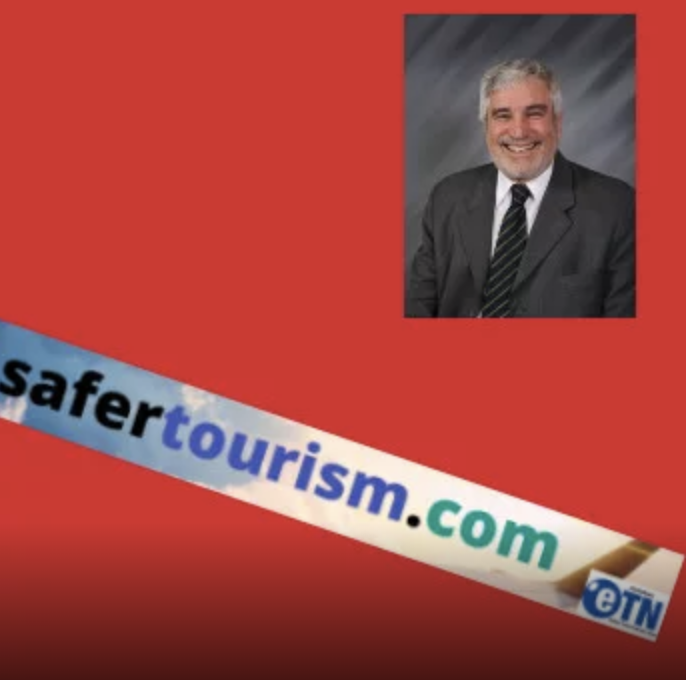
Safertourism.com: Tourism Security will be an issue in 2020
The 26th Las Vegas International Tourism Safety and Security Conference in 27 years was concluded last week. Next year a whole new concept of tourism security conferences is in the making.
The new face in 2020 will reflect the changing times as tourism security continues to be an issue around the world.
The weekly riots in Paris and the recent terrorist attacks in Sri Lanka demonstrate once again just how sensitive the tourism and travel industries are to the needs of security and safety (S&S). Professionals in S&S debate these issues with a great deal of emotion not only among themselves but also with their colleagues from all aspects of the travel and tourism industry. Slowly the travel industry’s many components are becoming ever more sensitive to the fact that every S&S decision is a business decision. Because not everyone can attend a tourism conference in this month’s issue of Tidbits, we present to you some of the ideas regarding tourism and security developed over the past two decades.
The ideas found below, come from past conferences and are meant to stimulate creative thought among those who work in the travel industry. These suggestions are not meant to be specific for any one particular locale or business nor are they an exhaustive list of problems or solutions. When thinking about security for your place of lodging, community or tourism business, consider some of these ideas:
-Define the problem(s). All too often tourism and travel professionals are so overwhelmed by issues of S&S that they fail to define which problems are central for their locale or business. At past tourism conferences some of the major safety and security problems the delegates defined were: the need to protect tourists not only from crimes against them but also from acts of terrorism. Delegates addressed safety issues such as: outbreaks of infectious diseases such as meningitis, ways to protect tourists from legionnaires disease and aids, methods to assure pure food and water. Speakers and delegates from around the world agree that for tourism to prosper, it must create travel possibilities in which the problems such as: diarrhea and typhoid cease to threaten the visitor. The delegates also recognized that the hospitality industry needs to be prepared to deal with natural disasters such as earthquakes and floods, as well as man-made problems such as traffic accidents and equipment failures. It was suggested that as the world is so varied, that tourism professionals must define those problems that are most pressing for their own region and/or business and develop methodologies that fit local budgets and cultures.
-Identify problems that will impact tourism/travel moving into the third decade of the twenty-first century. Not only should current problems be addressed but it behooves the S&S professional to anticipate problems that may not yet have occurred. Past Conference speaker have identified some of the problems that may also be future problems. For example, over the past years speakers and delegates have spoken about the need to insure consumer privacy while still maintaining a proper level of safety and security, determine what are acceptable levels of risk, develop cross-cultural safety and security standards, and demonstrate the impact of safety and security to administrator’s worried about profitability. The issue of personal privacy has become especially important in an age of cyber breaches and identity theft.
– Relate issues of safety and security to travelers’ choice of destination. To demonstrate the importance of S&S to the bottom-line, S&S professionals need to demonstrate how safety and security issues impact the traveler’s choice of destination, develop correct and universally accepted measurement standards and be prepared for a range of threats such as: attacks by youth gangs, political conflicts that become acts of violence against the travel and tourism industry, acts of money laundering, internet fraud, and ever-evolving high-tech crimes.
– Determine who has responsibility to protect, inform, and to educate the public. All too often, the travel and tourism industry has simply assumed that S&S is someone else’s responsibility. Over the almost past three decades our speakers have spoken about issues such as:
- Do S&S responsibilities fall only to private enterprise or should governments also be involved?
- How much victim assistance should hotels, attractions and restaurants provide when an incident occurs?
- Does the tourism industry have a right to seek assistance from other sources such as governments and still maintain its independence as a private industry?
- Is the tourism industry private, public or a hybrid industry?
- Who should define and implement travel and tourism victim protection and assistance?
- Who will oversee the implementation of these policies and determine if they are effective?
Regarding tourism safety and security past speakers have also formulated such concerns as:
- How much about a security situation should be made public?
- How is a balance created between educating the public, working with the media and still not harming the local travel and tourism industry?
The above questions are important research topics and it has been the conference’s hope that the ideas expressed in this current conference and in years passed will lead to a number of practical solutions including:
- The need to train all people working in the travel and tourism in matters of safety and security, whom and how much training is needed?
- Assuring that travel and tourism officials understand the risks involved in ignoring these problems,
- Sensitizing law enforcement agencies and the media to the issues of travel safety and security,
- Developing model crisis plans, devising and adopting international signs and pictograms that relate to tourism safety and security,
- Developing an inventory of the best practices in the field,
- Studying and then implementing “victim advocacy” programs as used in the travel and hospitality industry from around the world.”
The challenge to the travel and tourism industry will be to translate these ideas into actions, and to take turn the hope of a safer and more secure tomorrow in to a reality. In 2020 tourism security will enter will be prepared to create new lessons and ways that tourism professionals can meet not only the challenges of yesterday but also of tomorrow.
More on Dr. Tarlow and travel & tourism security: www.safertourism.com
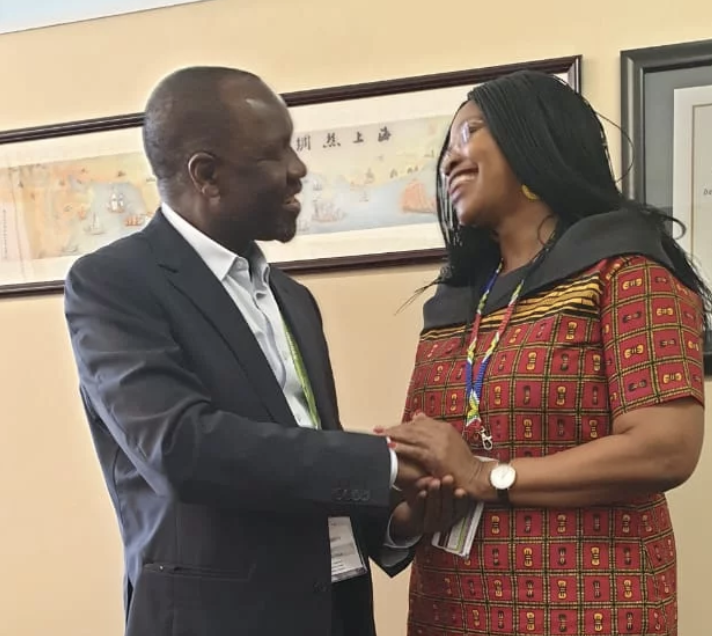
African Tourism Board and Durban ICC: Working together on Sustainable Development Goals
At the ongoing Indaba travel industry trade show in Durban, African Tourism Board Vice President Cuthbert Ncubemet with Lindiwe Rakharebe, the Chief Executive Officer of the e Inkosi Albert Luthuli International Convention Centre Complex in the city center of Durban, KwaZulu-Natal, South Africa.
ATB VP Ncube said: “Our discussion centered on a need for a more robust approach in aligning so much diversity in terms of products from the region that can play a catalytic role that will see all countries in the region working together towards achieving the Sustainable Development Goals. Tourism plays a pivotal roll in fulfilling these.
Lindiwe Rakharebe holds a Bachelors Degree in Management Leadership and is credited to have contributed immensely to the success of Durban ICC. The Center has won several awards under her leadership as Africas leading Meeting and Conference Centre and is rated among the world s top client-rated convention centers.
She sees the African Tourism Board playing a more direct and positive roll in acknowledging the need for a more inclusive synergy in the region. She suggested moving to a more strategic partnership in hosting African Tourism Board conferences.
Lindiwe Rakharebe proudly added: “The convention center prides itself as Africa’s leading convention center and offers the largest flat floor, column-free, multi-functional event space in Africa.
Today’s meeting was a follow-up discussion after our article: Durban loves African Tourism Board and Africa wins
Founded in 2018, the African Tourism Board is an association that is internationally acclaimed for acting as a catalyst for the responsible development of travel and tourism to, from, and within the African region. For more information and how to join, visit africantourismboard.com.
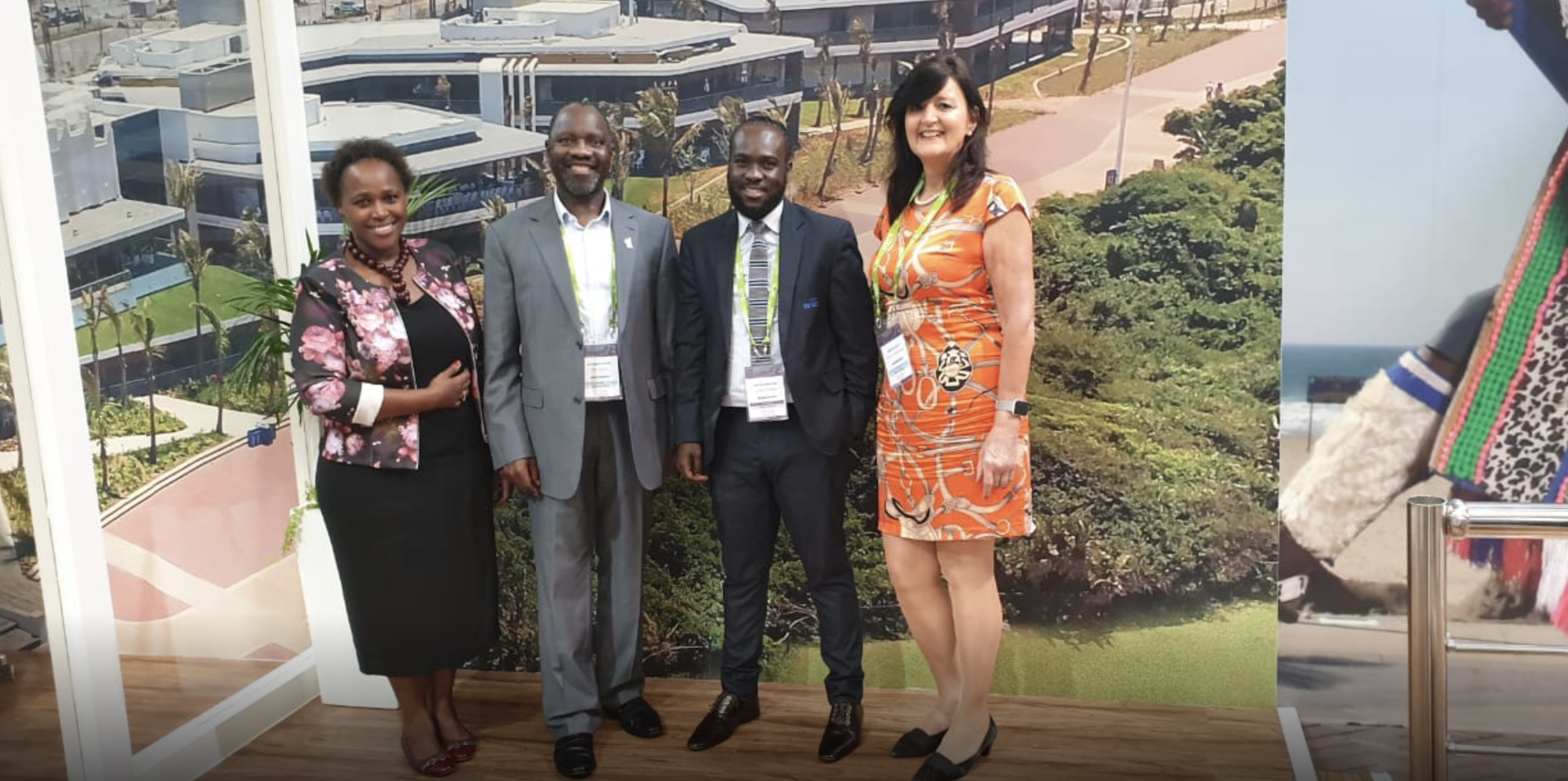
Durban loves African Tourism Board and Africa wins
Durban loves African Tourism Board, and the African Tourism Board loves Durban.
Durban is the official host of the largest travel industry trade show in Africa, Indaba, that opened yesterday. Sibusiso Mngoma, Senior Manager, Information & Tourism Sevices at Durban Tourism wants African Tourism Board to hold its first conference in this multi-cultural showpiece of a global destination.
This was discussed in a meeting with African Tourism Board Vice President Cuthbert Ncube and CEO Doris Woerfel yesterday.
The Zulu Kingdom, or the Province of KwaZulu-Natal (KZN) in South Africa has a devout following throughout continental Africa. Nowhere else in the world will one find such a unique fusion of raw natural beauty, modern sophistication, cultural diversity and pulsating energy – all in the most breathtaking natural setting.
Durban has become the hub of Tourism with its diverse cultural products, a Province that has a rich cultural history.
African Tourism Board interim chairman Juergen Steinmetz commented from the U.S: “This South African multi cultural city is the ideal place for all of Africa to come together and celebrate the beauty of the African continent as one destination. Thank you to our CEO and VP to open the doors for our young organization to get to know Sibusiso Mngoma and his team in KwaZula-Natal. We will certainly consider this generous offer.”
Cuthbert Ncube added: “Durban Tourism suggested to host us during the Month of September 2020 if we are ready, being the month of Tourism.”
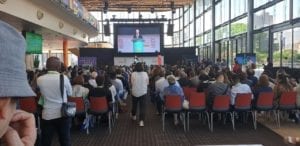
Founded in 2018, the African Tourism Board is an association that is internationally acclaimed for acting as a catalyst for the responsible development of travel and tourism to, from, and within the African region. For more information and how to join, visit africantourismboard.com.
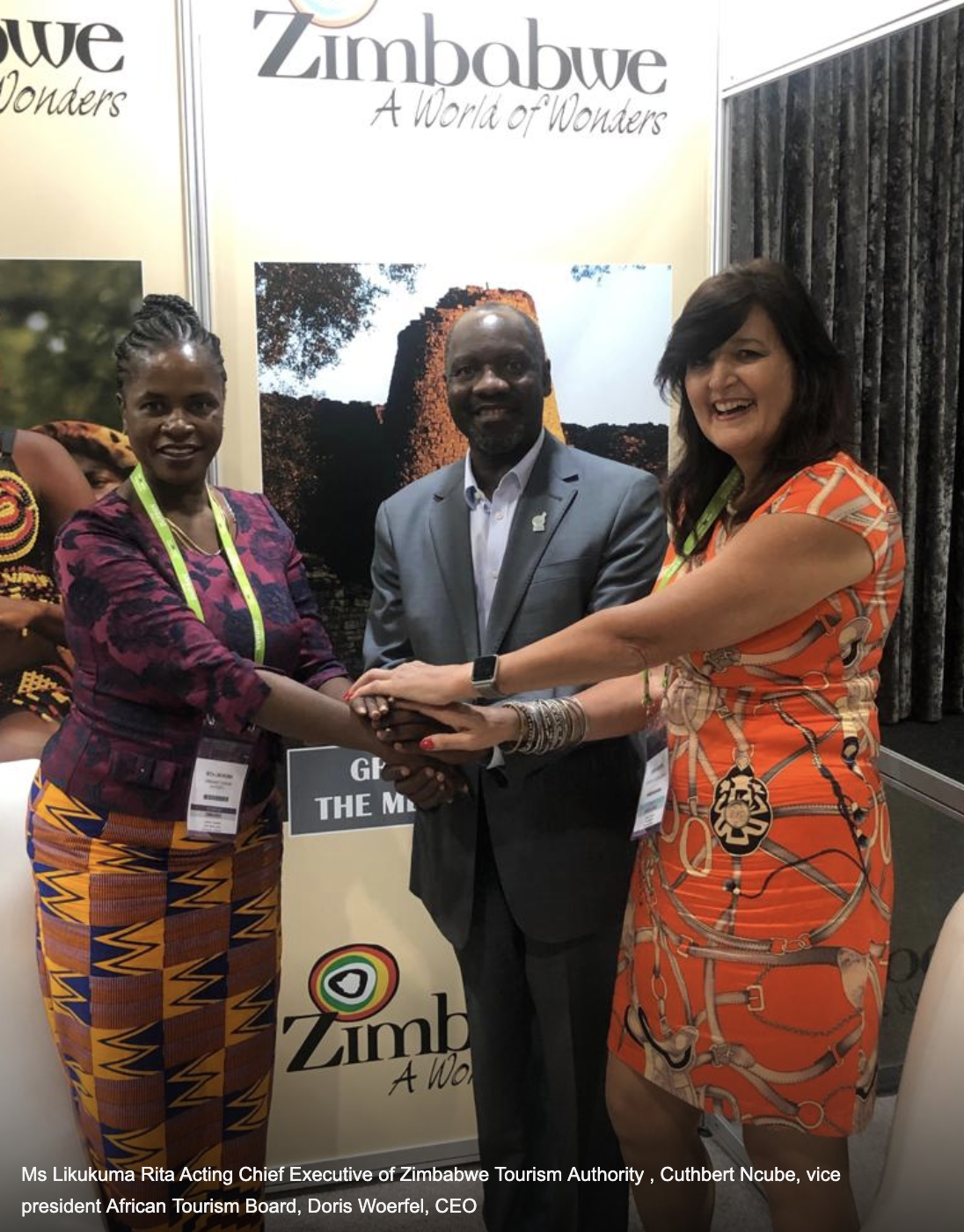
Zimbabwe Tourism invites African Tourism Board leaders to a fact-finding mission
African Tourism Board leaders were invited to Zimbabwe for a fact-finding mission and were afforded the opportunity to participate in a discussion with the Zimbabwe Minister of Tourism, Priscah Mupfumira.
This was discussed yesterday with Ms. Likukuma Rita, acting Chief Executive of Zimbabwe Tourism Authority; African Tourism Board VP Cuthbert Ncube; and ATB CEO Doris Woerfel at the Indaba travel industry show in Durban, South Africa.
Zimbabwe has a rich history of untapped tourism products like the Great Zimbabwe National Monument, and the ruins of Great Zimbabwe – the capital of the Queen of Sheba, according to an age-old legend. They are a unique testimony to the Bantu civilization of the Shona between the 11th and 15th centuries.
Likukuma Rita was passionate to work with the African Tourism Board on the Transfrontier Conservation Projects and other important developments close to Zimbabwe Tourism development.
The African Tourism Board VP voiced his excitement to closely work with Zimbabwe. He said, “The African Tourism Board is looking forward to Zimbabwe officially joining our board.”
Founded in 2018, the African Tourism Board is an association that is internationally acclaimed for acting as a catalyst for the responsible development of travel and tourism to, from, and within the African region. For more information and how to join, visit africantourismboard.com.
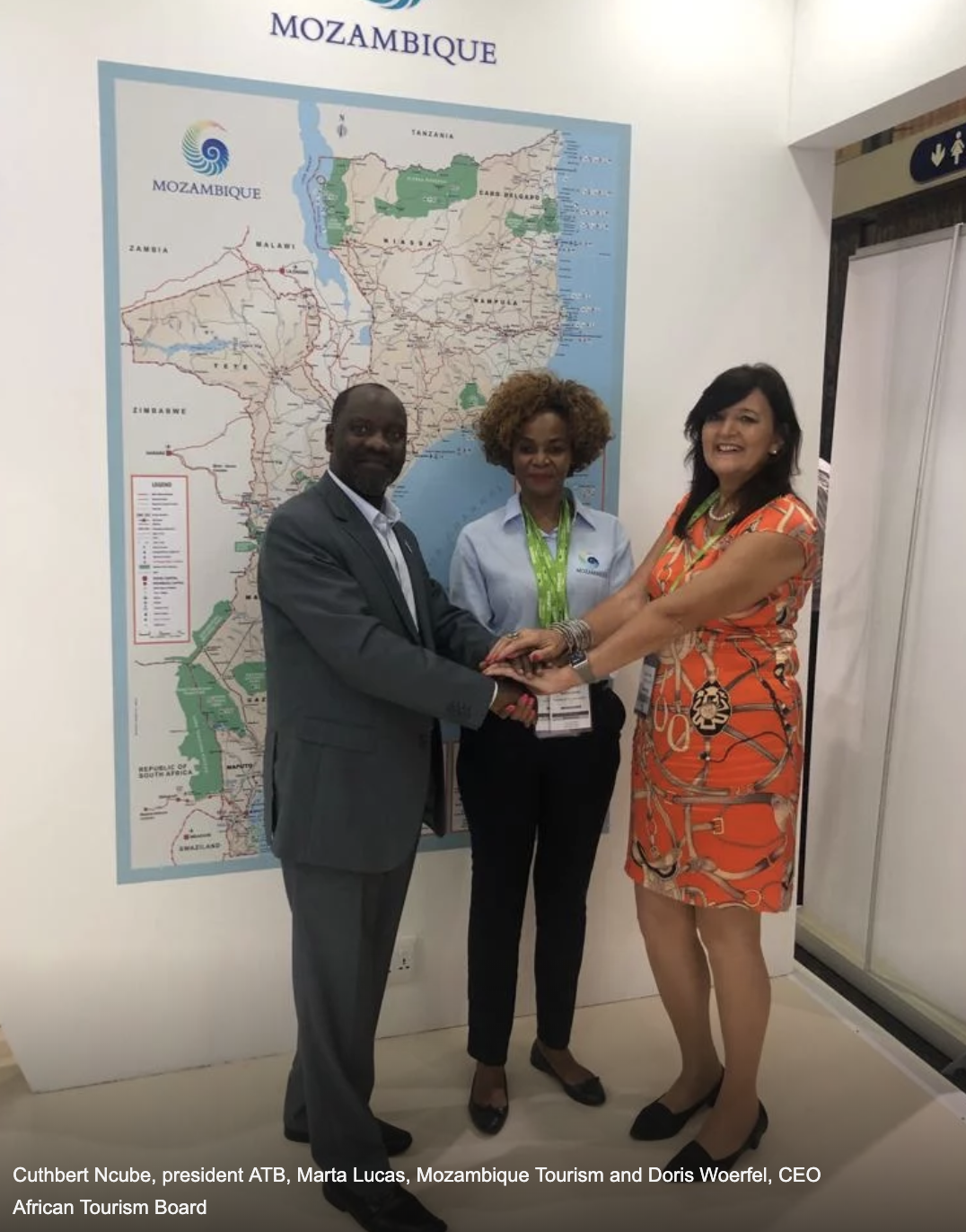
African Tourism Board met Mozambique to assist after double cyclone
African Tourism Board Vice President Cuthbert Ncube and CEO Doris Woerfel yesterday met with Marta Lucas in charge of PR, marketing, and communication for the Mozambique Tourism Board. The meeting took place at the ongoing Indaba travel show in Durban, South Africa.
Mozambique recently suffered major losses after it was hit by a double cyclone. Marta Lucas said, “The African Tourism Board is seen as a voice in the region, and we’re pleased to soon join this important initiative.”
The African Tourism Board is working with Mozambique on options to assist the country during this difficult time and the rebuilding of their travel and tourism industry.
Founded in 2018, the African Tourism Board is an association that is internationally acclaimed for acting as a catalyst for the responsible development of travel and tourism to, from, and within the African region. For more information and how to join, visit africantourismboard.com.

Zambia wants African Tourism Board to implement inclusiveness approach
African Tourism Board (ATB) CEO Doris Woerfel and Cuthbert Ncube, the new Vice President of ATB, met with Mwabashike Nkulukus, the Marketing Director of the Zambia Tourism Agency, today at Indaba, the largest travel industry trade show in South Africa, currently taking place in Durban.
Cuthbert Ncube told eTurboNews: “We had a very successful meeting and agreed on a need to a more synergized approach in the Southern African region.”
Zambia is calling for the African Tourism Board to implement and drive the inclusiveness approach. Priding Zambia with its geographic advantage location linking with 6 African nations, it is ideally situated to cooperate in the field of travel and tourism and every region’s exclusive products.
Mr. Mwabashike emphasized the need to have a brotherhood approach to help Africa to understand its full potential. The Zambia Tourism director was in full support of this great initiative and was looking forward to being part of the African Tourism Board.
In 2014 Mr. Nkulukusa joins the Zambia Tourism Board with over 10 years of industrial experience predominantly in the global tertiary education and tourism markets. His recent roles included that of Marketing Manager at the Australian Institute of Business and Technology (AIBT), Business Development Manager at the Zambia Centre for Accountancy Studies (ZCAS) and Tourism and Investment Marketing Lecturer at the Zambia Institute of Diplomacy and International Studies (ZIDIS). Among other qualifications, Mr. Nkulukusa holds a Postgraduate Diploma in Marketing from the Chartered Institute of marketing (CIM) and an MBA in Global Corporate Strategies from Cyprus. He is also a fellow and member of the Zambia Institute of Marketing (ZIM) and CIM respectively. ATM is confident that Mr. Nkulukusa brings to the Zambian tourism industry and its stakeholders elaborate experience, dedication, and passion as he has demonstrated throughout his career.
Founded in 2018, the African Tourism Board is an association that is internationally acclaimed for acting as a catalyst for the responsible development of travel and tourism to, from, and within the African region. For more information and how to join, visit africantourismboard.com.

WISeKey, WISeCoin AG and SUNx – Strong Universal Network – sign partnership
WISeKey International Holding Ltd (“WISeKey “) (SIX: WIHN), a leading global cybersecurity, Blockchain and IoT company, WISeCoin AG and the SUNx – Strong Universal Network,announced today a partnership to jointly develop a special purpose Blockchain Center of Excellence in Brussels focusing on the development of standards and technologies to accelerate Climate Friendly Travel.
WISeKey Blockchain technology developed by WISeCoin creates a trusted decentralized and highly efficient way to record carbon emissions using digital identities on the blockchain. Recording all CO2emissions that occur globally and requiring emissions contributors to offset them by purchasing and revoking the corresponding amount of tokenized digital certificates eliminates the need for taxation. Furthermore, companies that have developed technologies that remove CO2 from the atmosphere will be able to register their impact on the blockchain and trigger the new emission of digital certificate tokens that will allow them to further invest in the technology. With this model it will be possible to generate new emission certificates, called WISeTravel Carbon Offset Tokens. In the case of shortfalls, the travel industry will invest into WISeTravel Carbon Offset Tokens in order to fulfill their requirements.
Professor Geoffrey Lipman co-founder of SUNx and President of the International Coalition of Tourism Partners (ICTP), a travel and tourism coalition of global destinations committed to quality service and green growth, said: “We are delighted to cooperate with WISeKey by using state-of-the-art technology to bring a new Blockchain and Identity capacity to the world’s largest challenge, Climate Change Resilience, and one of the world’s largest industries, – travel and tourism. The SUNx ‘Plan for our Kids’ climate friendly travel program calls for 100,000 STRONG Climate Champions by 2030 in all UN States. Through this collaboration we will be in a better position to deliver Climate Friendly Travel – measured, green, 2050 proofed, and meet the Paris Agreement Carbon targets.”
These technologies will help galvanize regional, national, and local stakeholders to develop their own climate change programs using blockchain technologies – for air, oceans, land, cities, industries, rural communities, indigenous people etc. Each with their own vision of priorities and goals. The partnership ultimately aims at transforming overall production, consumption, and investment and better align them with the 2030 The Sustainable Development Goals (SDGs) and the 2050 Climate transformation.
Carlos Moreira, Founder and CEO of WISeKey said: “One of SDGs goals that stands out from the rest and is fundamentally existential, is climate change. Simply put, life on our planet is threatened, and without immediate, concrete actions the consequences will be irreversible – future generations will either freeze or fry and the intensifying consequences of extreme climate will continue to severely aggravate many of the other SDG challenges. Our special purpose Travel & Tourism Industry Blockchain Center of Excellence in Brussels will not only develop and deploy groundbreaking products and solutions for the industry and consumers but also harness the power of technologies to act as a catalyst of change and climate transformation.”
The Paris Agreement, with its 2050 national carbon reduction targets must be fully implemented and intensified every 5 years. In 2017, the world’s largest industrial activity, Travel & Tourism, formally embraced the SDGs, engaging public, private and civil society stakeholders in an International Year of Sustainable Development. Rightly so, to become a real force for good, we must be up with the mainstream curve on building sustainability into all growth and development aspirations. The main challenge remains how to keep Climate Resilience front and center when travel and tourism continues to massively grow.
The Blockchain Center of Excellence in Brussels will be fully interoperable with WISeKey’s network of Blockchain Centers of Excellence in India, Canada, China, Buenos Aires, Malaysia, Mauritius and Rwanda with new centers planned in the MEA region, including two in Saudi Arabia. All these centers will be interconnected with its 3 main hubs: Geneva, Toronto and Beijing, a Trust Triangle operating under a Common Trust Protocol, using WISeKey’s PKI hardened Blockchain technology, bringing trust and security, while maintaining the core Blockchain values of transparency, auditability, and traceability. WISeKey’s implemented and integrated PKI solution is complementary to any Blockchain platform, where it can assist with developing a better trust model for use within a distributed system and create a universal Trust Protocol for the Web 2.0.
Like all other Blockchain Centers of Excellence, the new center in Brussels will assist local Blockchain startups to promote their technologies internationally, facilitate the rapid adaptation and on-boarding of Blockchain-based solutions, foster stronger collaboration between the public, private and academic sectors and cooperate to ensure that the latest technological standards are made available in a safe and trusted manner.
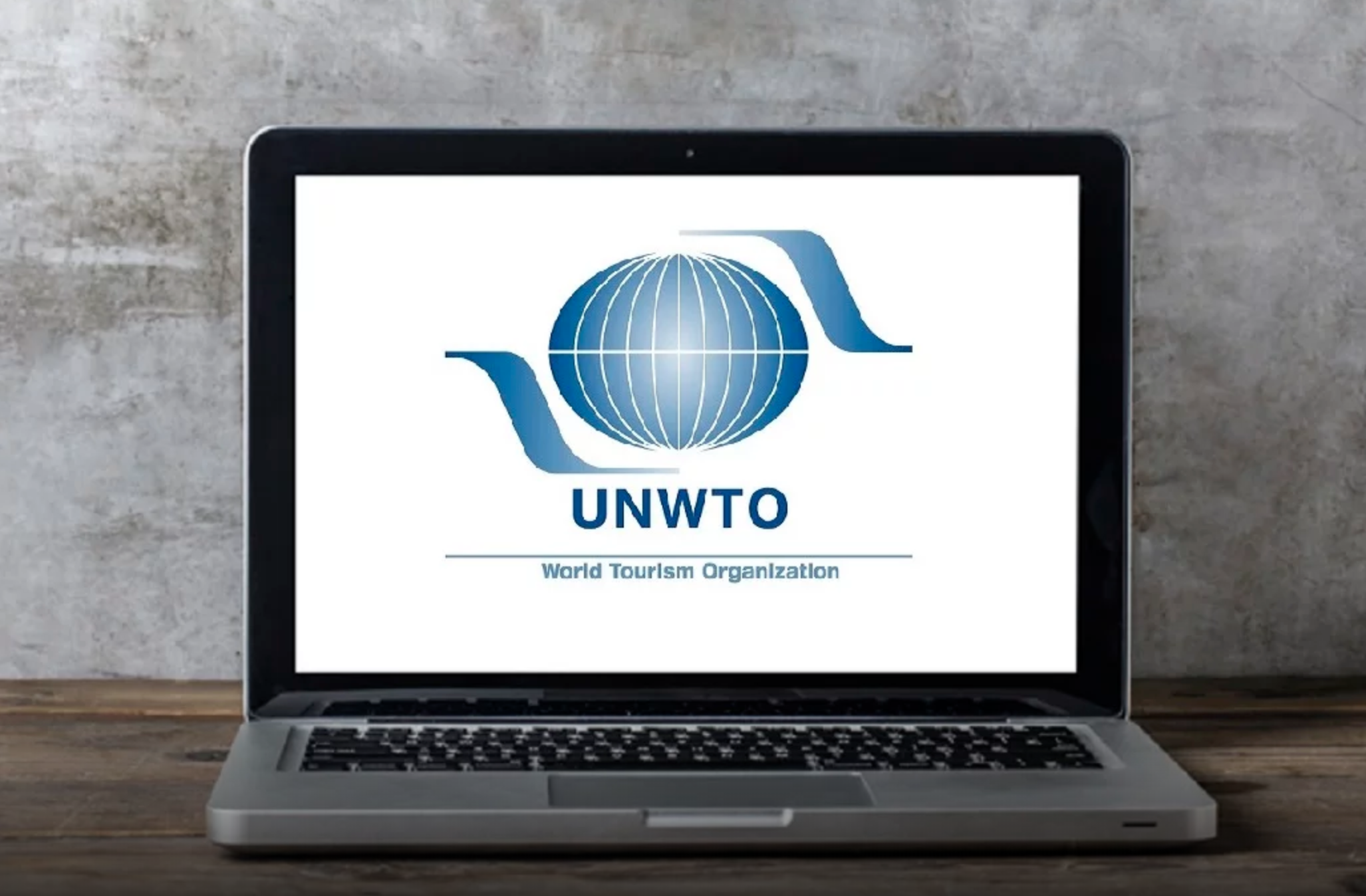
UNWTO partnership to develop digital tourism agenda
The application of new technologies such as Big Data and the Internet of Things are already leading to new uses and applications that will revolutionize services in the tourism sector and responses to new customer demands. For this reason, a new alliance places special emphasis on jointly addressing the challenges and opportunities that this technological change entails and initially takes concrete form in four specific lines of action.
Telefónica and the World Tourism Organization (UNWTO) have announced an agreement to collaborate in the development and implementation of digital entrepreneurship and training initiatives that allow the tourism sector to increase its competitiveness and strengthen its long-term sustainability. This agreement comes at a time of profound technological change that impacts all industrial sectors, where a commitment to innovation and transformation is essential.
First, both parties are committed to promoting innovation and digital entrepreneurship within the tourism sector through the creation of innovation forums, collaboration in open innovation programs with third parties, and public-private collaboration models focused on Open Innovation. The aim of these initiatives is to create the suitable spaces for the development of innovative ideas and outreach to all the actors involved.
New technologies will have an increasing role in the modernization and growth possibilities of the tourism sector and, therefore, both entities will launch initiatives aimed at the use of Internet of Things (IoT), Artificial Intelligence and Big Data, among others. Many of IoT’s solutions, such as Retail, help build customer loyalty by digitizing spaces that create a unique visitor experience. Or mobility solutions, which allow tourists to enjoy rental cars or car-sharing in a completely safe way. An enormous amount of knowledge is generated about the behavior of travelers through the sensors that make up the different IoT services, allowing us to offer them what they particularly need at any given moment.
On the other hand, the analysis of Big Data makes it possible to understand patterns of behavior to better address some of the challenges facing tourism in Latin America and Europe, and to draw relevant conclusions that influence decision-making and public policies. LUCA -Telefónica’s Big Data and AI unit- is already working with national and local tourism organizations in eight countries in Latin America and Europe through more than 40 projects.
Another important point of this agreement is to focus on Digital Education and Training, something essential in a new technological world in which jobs and skills are changing radically, affecting the employability and sustainability of businesses. In this sense, both entities will collaborate through the training platforms managed by Telefónica Educación Digital, such as Miríadax, to promote local and international courses on digital technologies and skills applied to tourism and aimed at different entities in the sector.
Lastly, Telefónica will lend its support to the UNWTO in the development of a specific Digital Agenda for the tourism sector guided by a set of very concrete objectives: to place new technologies at the service of sustainable growth, foster innovation and promote inclusive economic and social development.
The framework agreement between the two organizations has been signed in Madrid by Jaime Cabal, Deputy Secretary-General of the World Tourism Organization, and by Eduardo Navarro, Director of Communication, Corporate Affairs, Branding and Sustainability of Telefónica S.A.
During the signing, Cabal said that “innovation and digital transformation are among the priorities of the World Tourism Organization in order to provide additional impetus to tourism as an ally of sustainable development.” He added, “Together with Telefónica we can help our more than 160 Member States build their tourism innovation ecosystems and create digital tools that facilitate more efficient decision-making thanks to the use of Big Data, artificial intelligence and many other advances.”
For his part, Eduardo Navarro stressed: “This framework agreement is very important because the technologies are drawing the future of travel and tourism. Virtual and augmented reality, Big Data, cognitive intelligence and the Internet of Things will be a fundamental part of the tourist experience and Telefónica is a very important player in the provision of these services. The fibre networks deployed by Telefónica will also be decisive in making this a reality that will have an impact on the experience of users and on the services provided by the different players in the sector.”

UNWTO leader Cuthbert Ncube appointed VP African Tourism Board
Cuthbert Ncube, the World Tourism Organisation (UNWTO) regional vice-president was appointed today as the Vice President of the African Tourism Board
Mr. Ncube is based in Pretoria, South Africa. In his initial welcome statement to African Tourism Board members, Mr. Ncube said:
“For the past decade, Africa has exhibited strong Tourism growth. New growth momentum has been established, but headline economic growth is not enough. Deliberate policies to reduce inequalities and promote Regional inclusion are now needed more than ever before.
The process of renewal is ceaseless. It is as a fountain that keeps flowing no matter how ill-prepared or prepared the benefactors may be. It is constantly and persistently in motion, regardless of time, season or place.
The winds of change are ever blowing. Not only across Africa, but throughout the World. Africa therefore, as the incubator of all life cannot afford to drag her feet nor find herself out of sync with current trends. Africa must, therefore, spearhead the processes of renewal in view of the boundless resources at her disposal. From natural resources to Human Resources, gold, diamond, and all flora and fauna, we are the custodians and have it all.
We are the dream Tourist destination of the World. In as much as there is splendor in the great historical monuments of the Greco-Roman era. Africa boasts of living attractions. Satiation for the Tourist appetites. The thrill of the game parks, that offer days of camp out in the African Wilderness.
The starlit skies that offer an intriguing get away from the hustle and bustle of city life. The stretches of the African plans, whether be it on the Okavango Delta, or the Masai plains, or the jungles of the Hwange Game reserve or the great Kruger National park. All these sites offer what cannot be paralleled elsewhere.
We are the living Tourist destination of the World.
However, let me hasten to highlight our challenges. In as much as the natural offerings of our continent may be great, the package of our continent leaves a lot to be desired. There is no country in this continent that is still under colonial rule, and yet we are still struggling with issues such as greed and gluttony such as was found in our oppressors, who had all grounds to feel so, as they were fully aware of the fact that they were plundering what was not theirs.
We, on the other hand, have all the rights to take care of all our resources as they are ours and our progeny. It is time to learn the hard lesson that, our Africa has more than enough for our time and the times ahead if only we learn to only use what we need now.
We are heavily polarised by what the colonialists have worked hard to destroy after discovering its incapacitating effects. As a continent, we are so hopelessly fragmented such that, we are not even ready to move into the levels of economic competitiveness that can warranty our stake in the world economic playing field. We are still inhibited by foreign policies that are a legacy of colonialism.
We are fully open to foreign Tourists and yet very suspicious of our domestic clients. Inter boarder relations within our continent, therefore, must be repackaged, be user-friendly Both by a domestic and international clientele.
Africa must be accessible and affordable to its people and by its people. It is time to break away from this culture of colonial seclusions and embrace the culture of a free Africa.
Being part of the African Tourism Board I am advocating for a new way of We are a prime Tourist destination.
Therefore, a Brotherhood of African states is the best legacy that we can live in and leave behind. Tourism sector as one of the key economic drives, thereby increasing Tourism contribution to the Region’s domestic product. It is time to reunite our strength and unite our resolve. It is time to move as one for the unfailing outcome. Now is the time to speak with one voice. Let the walls of separation fall and let bridges spun the divide. We are one and we are Africa.”
Cuthbert Ncube is the current Regional Vice President of the United Nations World Tourism Organization (UNWTO) and the Chief Executive Director of Kwela Fleet Management, South Africa and Golden Feathers Lodge in Cape Town. He has over 20 years’ experience in business leadership and business development, including his role as the regional vice president of the UNWTO.
In 2013 Kwela Fleet Management was accepted as an Affiliate Member to the United Nations World Tourism Organisation which is an organ of the United Nations. In the same year of 2013 during the United Nations World Tourism Organisation General Assembly in Zambia, Mr. Ncube was elected as the Regional Vice – President of the United Nations World Tourism Organisation Affiliate Members – Africa and also serves as a Board Member. He was re-elected in September 2015 at the Plenary Session of the United Nations World Tourism Organisation General Assembly in Madeline Columbia, 2017 saw him being re-elected again in London during the Plenary Session as he is serving his 3rd term.
Cuthbert’s areas of expertise include strategic management, business development, International Relations, Cooperate Governance, and customer service. He also has other business interests in the tourism industry including journalism and brand management.
Before getting involved in his current profession, Cuthbert maintained affiliation with all key role player of Africa Tourism Industry including Cape Town Tourism, the Durban Chamber of Commerce and Industry, Africa Tourism Partners and RETOSA. He also collaborates with other African tourism experts to create economic development opportunities for Africans, particularly, in tourism, travel, and hospitality. He currently serves on numerous boards.
Kwela Fleet Management was established in Pretoria in 1996 providing services across all the major provinces and cities in South Africa including Eastern Cape, Western Cape, KwaZulu-Natal and Gauteng, and has its presence in Lisbon trading as Kwela Europa. It has a highly experienced and committed management team. Among the company’s clients are government departments, embassies, travel management companies and private.
African Tourism Board interim chairman Juergen Steinmetz said: “I am very happy to see Mr. Cuthbert Ncube bring in his ideas and wealth of knowledge into our new organization. It’s another great day for th African Tourism Board and an important next step for our ultimate goal to for Africa to become one tourist destination.”
More information on African Tourism Board and how to join go to www.africantourismboard.com
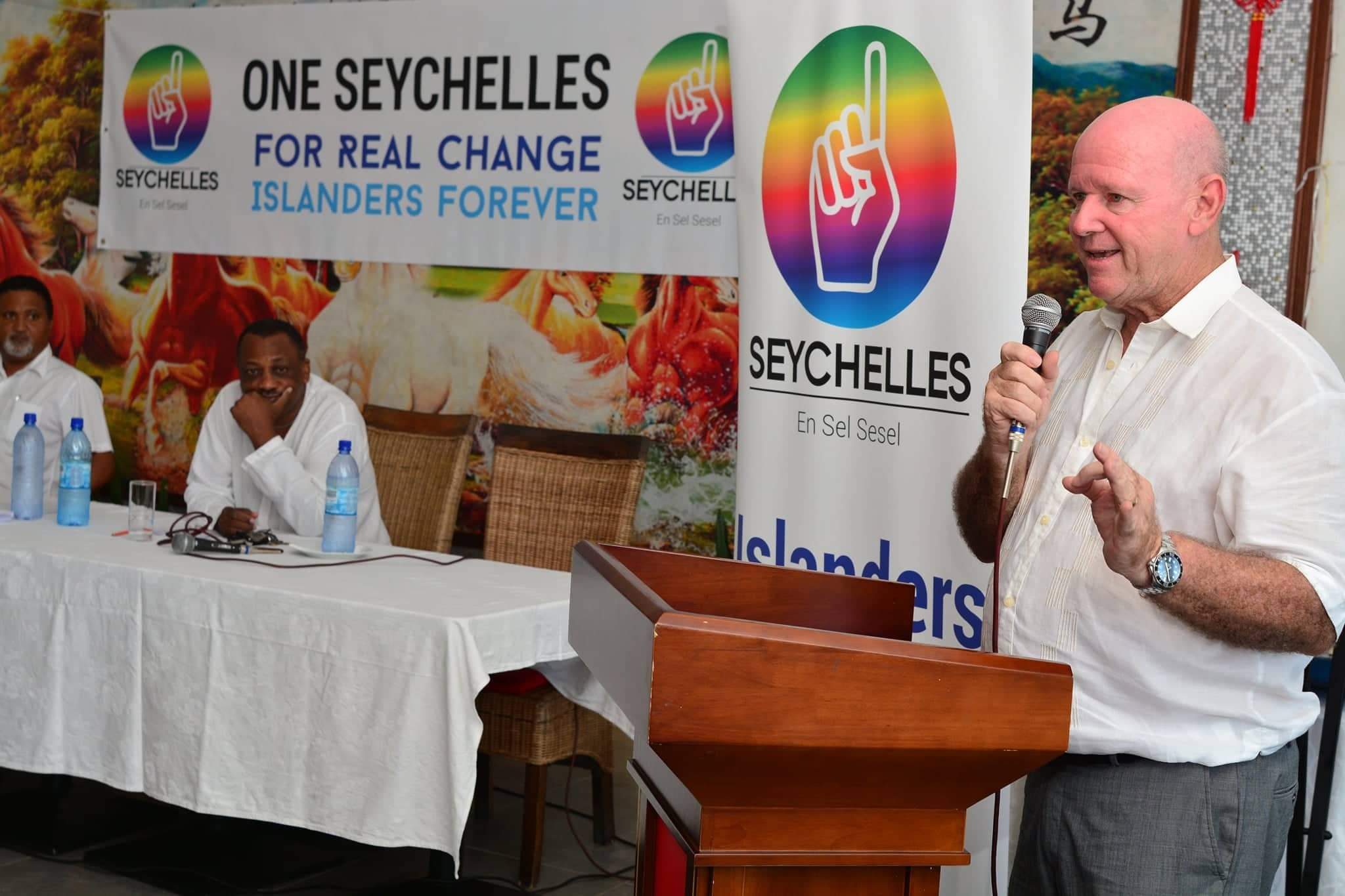
Alain St. Ange for Seychelles President
The launch of the “One Seychelles” Political Party was held on Friday the 26th April and Alain St.Ange, the island’s former Minister for Tourism, Civil Aviation, Ports and Marine was elected to lead the party as they prepare for the coming elections. St.Ange is joined by former Minister Peter Sinon who held the Fisheries portfolio after returning to Seychelles from the African Development Bank. St.Ange is the current president of the African Tourism Board. The following were elected to serve on the Executive Committee of the ‘One Seychelles’ party:
PRESIDENT:- Alain St.Ange
SECRETARY GENERAL:- Peter Sinon
TREASURER:- Vincent Padayachy
DEPUTY SECRETARY GENERAL:- Claude Bonte
COMMITTEE MEMBERS:- Bernard Port Louis, Sandra Boniface, Herve Anthony, Edouard Anacoura, Justin Francois, Brian Soumery, Ian Delorie, Allan Ah-Thion, Marinette Tamatave, Brondy Hertel, Dorina Vidot, Jean Barra, Jean-Claude Denis, Michou Delorie-Walsh, Antoine Puren, Emmanuel de Stefani, Dean Padayachi & Benjamin Port Louis.
After the election of Office Bearers of the new political party Alain St.Ange and Peter Sinon, the President and Secretary General of the “One Seychelles” political party took to the podium to address the full house of interested Seychellois present with numbers far surpassing all their expectations.
Peter Sinon, the Secretary General of “One Seychelles” explained the Party’s Manifesto and spoke at length on unity for Seychelles and safeguarding the islands.
When Alain St.Ange, the President off the “One Seychelles” political party took to the podium he started by saying that the 26th April 2019 would remain a historical day in Seychelles Politics with the launch of the “One Seychelles” party. Alain St.Ange went on to welcome the leaders of the “Lalyans Seselwa” Party of Patrick Pillay who were present to show solidarity in the opposition. He also thanked everyone present who had come forward from the red or green political camps.
“Today everyone present we have visited you at home, or we have interacted with you for the creation of a new Seychelles. This move will not please everyone especially those who believe they have a monopoly on ideas and on what is needed for the people of Seychelles. This cannot be an attitude for anyone who believes in democracy and what a democratic society stands for. They should buy a Monopoly Board Game and play it at home someone on Praslin said. We have named this new political party ‘One Seychelles’ because it is to push the point that we all have only one Seychelles, and the time has come to do away with the ‘with us and not with us’ policy that has been destroying our country. This policy is worst today than ever before and resulting with so many capable Seychellois not being able to do their bit to keep Seychelles on the road of success and in so doing earn a decent living for themselves and their family.
